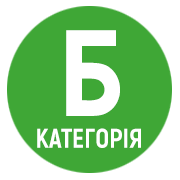РОЛЬ МЕДІАГРАМОТНОСТІ У БОРОТЬБІ З ІНФОДЕМІЄЮ
DOI:
https://doi.org/10.32689/maup.philol.2023.1.11Ключові слова:
інформаційна грамотність, інфодемія, дезінформація, місінформація, фейкові новини.Анотація
Ця стаття містить якісний аналіз, який має намір висвітлити питання боротьби з неправдивою інформацією. Переглянуто матеріали щодо боротьби з феноменом надмірного поширення фейкових новин, проаналізовано наукову літературу з доказовими практиками. Мета. Систематичний огляд літератури для виявлення нових практик проти фейкових новин. Більшість досліджень зосереджені на навчанні інформаційної грамотності в боротьбі з фейковими новинами. Ця стаття спрямована на обговорення таких практик для визначення їхньої ефективності. Методологія. Було проведено систематичний огляд літератури, 32 статті, надруковані у 2020–2022 рр, з метою отримання відомих практик. Після категоризації практик було проведено якісний аналіз. Наукова новизна. Цифрова медіаграмотність є новою ареною для реалізації стратегій боротьби з фейковими новинами. Тема актуальна через те, що ми живемо у час інформаційних революцій. Поточні дебати все ще точаться навколо стратегій інформаційної грамотності для подолання фейкових новин. Тема зберігається і буде розвиватися в науковій літературі. У сучасному суспільстві необхідні додаткові дослідження з цієї теми, щоб надати практикам ефективні стратегії. Висновки. Роль інформаційної грамотності у суспільстві досі залишається відкритою дискусією, але існує консенсус відносно того, що медіа повинні брати участь у партнерстві та бути частиною мультидисциплінарного підходу. Потрібно використовувати мультидисциплінарний підхід, адже феномену поширення надмірної кількості інформації фейкових новин не можна протистояти одним рішенням. Немає сумнівів, що явище інфодемії поширюється з кожним днем, тому світ повинен об’єднатися, щоб зробити людей грамотними, які б вміли відрізняти правдиву інформацію від фейкової, а також розуміти різницю між новинами та просто думками для кращого споживання медіаконтенту.
Посилання
An ad hoc WHO technical consultation managing the COVID-19 infodemic: call for action. World Health Organization, 2020.
By Claire Wardle PhD and Hossein Derakhshan With research support from Anne Burns and Nic Dias. Information disorder: toward an interdisciplinary framework for research and policy making. 2017. 90 p.
Cooke N. A. A right to be misinformed? Considering fake news as a form of information poverty. Advances in librarianship. 2021. P. 45–60. URL: https://doi.org/10.1108/s0065-283020210000050002
Cooke N. A. Fake news and alternative facts: information literacy in a post-truth era. Chicago : ALA Editions, 2018.
Delellis N. S. & Rubin V. L. COVID-19 #vaccineskill, and social media censoring: how librarians and educators can combat fake news and misinformation. against the grain. 2020.
De Paor S., Heravi B. Information literacy and fake news: how the field of librarianship can help combat the epidemic of fake news. The journal of academic librarianship. 2020. Vol. 46, no. 5. P. 102218. URL: https://doi.org/10.1016/j.acalib.2020.102218
How can psychological science help counter the spread of fake news? / S. van der Linden et al. The spanish journal of psychology. 2021. Vol. 24. URL: https://doi.org/10.1017/sjp.2021.23
https://www.lexico.com/en/definition/infodemic
https://www.mattwkane.com/wp-content/uploads/2020/01/Irresistible.pdf
Immunizing the public against misinformation. World Health Organization (WHO). URL: https://www. who.int/news-room/feature-stories/detail/immunizing-the-public-against-misinformation
Information Literacy. Retrieved December 8, 2020, from https://onlinecourses.swayam2.ac.in/nou20_ ge09/unit?unit=31&lesson=32 13. Kleinman B. Z. Fake news ‘travels faster’, study finds. BBC News. URL: https://www.bbc.com/news/ technology-43344256
Lim S. Academic library guides for tackling fake news: a content analysis. The journal of academic librarianship. 2020. Vol. 46, no. 5. P. 102195. URL: https://doi.org/10.1016/j.acalib.2020.102195
Lor P., Wiles B., Britz J. Re-thinking information ethics: truth, conspiracy theories, and librarians in the COVID-19 era. Libri. 2021. Vol. 71, no. 1. P. 1–14. URL: https://doi.org/10.1515/libri-2020-0158
Mignardi D., Sturge J. Check your bias at the school library door: the power of the school librarian in an evolving information landscape. Hope and a future: perspectives on the impact that librarians and libraries have on our world. 2021. P. 13–22. URL: https://doi.org/10.1108/s0065-283020210000048002
Naeem S. B., Bhatti R. The Covid‐19 ‘infodemic’: a new front for information professionals. Health information & libraries journal. 2020. Vol. 37, no. 3. P. 233–239. URL: https://doi.org/10.1111/hir.12311
Revez J., Corujo L. Librarians against fake news: a systematic literature review of library practices (jan. 2018–sept. 2020). The journal of academic librarianship. 2021. Vol. 47, no. 2. P. 102304. URL: https://doi. org/10.1016/j.acalib.2020.102304
Social media, political polarization, and political disinformation: a review of the scientific literature / J. Tucker et al. SSRN electronic journal. 2018. URL: https://doi.org/10.2139/ssrn.3144139
Søe S. O. A unified account of information, misinformation, and disinformation. Synthese. 2019. URL: https://doi.org/10.1007/s11229-019-02444-x
The role of libraries in misinformation programming: a research agenda / J. C. Young et al. Journal of librarianship and information science. 2020. P. 096100062096665. URL: https://doi.org/10.1177/0961000620966650
Toward a comprehensive model of fake news: a new approach to examine the creation and sharing of false information / A. P. Weiss et al. Societies. 2021. Vol. 11, no. 3. P. 82. URL: https://doi.org/10.3390/ soc11030082
What we are talking about when we talk about social media: a framework for study / J. W. Treem et al. Sociology compass. 2016. Vol. 10, no. 9. P. 768–784. URL: https://doi.org/10.1111/soc4.12404
“Who is gullible to political disinformation?”: predicting susceptibility of university students to fake news / R. P. Bringula et al. Journal of information technology & politics. 2021. P. 1–15. URL: https://doi.org/ 10.1080/19331681.2021.1945988
Zimdars M., McLeod K. Fake news: understanding media and misinformation in the digital age. MIT Press, 2020. 416 p.






